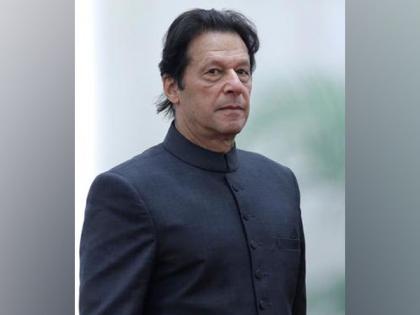Pro-Pak congressional resolution contrary to national security, insults US servicemen
By ANI | Published: July 26, 2019 04:19 PM2019-07-26T16:19:22+5:302019-07-26T16:30:18+5:30
A resolution recently tabled by two Republican senators recommitting the US' "continuing support" to Pakistan is not only an insult to American servicemen who laid down their lives while fighting in Afghstan but is also in contrast with goals of US national security.

Pro-Pak congressional resolution contrary to national security, insults US servicemen
A resolution recently tabled by two Republican senators recommitting the US' "continuing support" to Pakistan is not only an insult to American servicemen who laid down their lives while fighting in Afghstan but is also in contrast with goals of US national security.
In an opinion piece for Washington Examiner, Michael Rubin examines how lobbying was at play behind tabling of the resolution and underlines how Pakistan continues to harbour and support terrorists.
Senators Sheila Jackson Lee of Texas and Jim Banks of Indiana had introduced the resolution in the House of Representatives welcoming Pakistan Prime Minister Imran Khan to Washington and reiterating the US' stand to "continuing support and commitment to the long and enduring friendship between the United States and the Islamic Republic of Pakistan."
"Pakistan and the United States have a shared interest and are cooperating in efforts to establish lasting peace in Afghstan," the resolution reads.
However, the resolution adopted is a far cry from Pakistan's realities, considering that it continues to harbour, shield and support terror-groups operating on its soil and consistently undermining Afghstan's security and stability, writes Rubin.
The writer of the article also recalls an open letter written by Khan in 2009. In that letter addressed to then US President Barack Obama, Khan had said that the US is an "occupying power" in Afghstan and opined that the Taliban group is the legitimate government in the war-torn nation.
Khan also pointed fingers at Obama for a "supposed al Qaeda resurgence" in Afghstan owing to US' presence, which ironically, came at a time when Pakistan was sheltering Al Qaeda founder chief Osama bin Laden, who was killed in a raid by US special forces at his private compound in the garrison town of Abbottabad in 2011.
When Laden was killed, Khan had claimed that Washington's action was a breach of the UN Charter. In a fundraising visit to the US in 2012, Khan heaped praises on Taliban and justified the group's "jihad in Afghstan."
"Khan's followers have worked to prevent vital resupply of US and NATO troops fighting the Taliban. Blocking NATO supply through Pakistan in contravention of a diplomatic and contractual agreement which saw aid and fees flood into Pakist accounts was a position directed by Khan himself," Rubin notes.
"The Jackson Lee-Banks resolution urges greater investment in Pakistan, but it was again Khan who argued that taking American money made Pakistan a 'stooge.' Khan may seek money, but his track record over a long career suggests that humiliating the United States and promoting its assailants is his chief goal," the author opines.
Moreover, Rubin says that Pakistan's Inter-Services Intelligence agency and political elites in the country have long believed that using religious radicalism as a tool of foreign policy for achieving Islamabad's short-term goals.
"The elite bubbles in which Khan has lived his life are wrong, however. Religious radicalism may well be past the tipping point in Pakistan, and may very well be a danger that risks overwhelming more traditional Pakist politics and moderation," the writer warns.
To embrace Khan "sycophantically" and ignoring the fact that the policies he adopted and continuing to embrace them has led to the deaths of over 2,000 American servicemen and an exponentially higher number of Afghan civilians, says Rubin.
Criticising Lee and Banks for their resolution, the author says that the duo could have spoken the truth to Khan, if they "really cared" about the country, rather than allowing Islamabad "a free pass to launder it position papers through Congress".
Rubin concludes in his article, "The Jackson Lee-Banks resolution suggests a dangerous lack of strategic vision in both parties and a failure on Capitol Hill to honour the legacy and sacrifice of American troops who have made so many sacrifices to promote a better future in Afghstan and keep al Qaeda on the run."
( With inputs from ANI )
Open in app